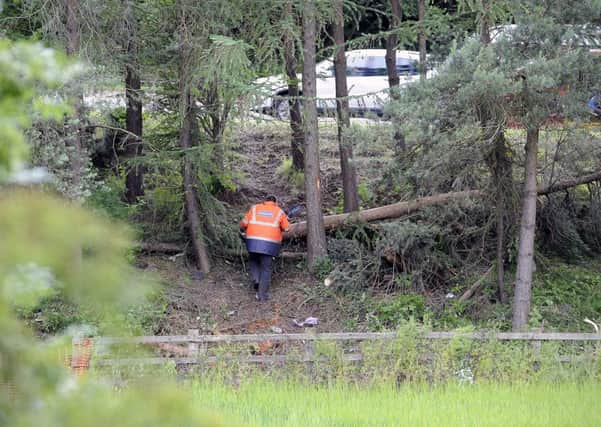Police call centre staff under ‘unacceptably high’ pressure


It came as the First Minister issued a public apology over the deaths of Lamara Bell and John Yuill earlier this year.
A report today said call handling staff in parts of Scotland are under “unacceptably high” pressure and the plan to close those in Aberdeen, Dundee and Inverness should not be implemented.
Advertisement
Hide AdAdvertisement
Hide AdMs Sturgeon was asked at First Ministers Questions today if she would implement the recommendations by Her Majesty’s Inspectorate of Constabulary in Scotland (HMICS).
The First Minister said: “We accept that recommendation unreservedly.”
She added: “We were all shocked and saddened by the circumstances surrounding the deaths of John Yuill and Lamara Bell and my thoughts continue to be with their families.
“Police Scotland have already apologise and on behalf of the Scottish government I want to say how deeply sorry I am for what those families are going through.”
Advertisement
Hide AdAdvertisement
Hide AdMr Yuill was found dead inside the Renault Clio three days after the crash on the M9 was first reported to police on Sunday, July 5. His girlfriend, Ms Bell, was still alive but died in hospital days later from dehydration. The call was taken by a senior officer, but the details were not then fed into the system.
The report today finds that many overflow calls are routinely diverted to central belt sites in Motherwell, Glasgow and Edinburgh’s Bilston Glen which took the fateful call at the centre of the M9 tragedy earlier this year.
The call handling report also says that there are staff shortages in Bilston Glen, Dundee, Aberdeen and Inverness.
The current practice of diverting unanswered overflow calls creates “additional risk” as these are then passed back to north area control rooms.
Advertisement
Hide AdAdvertisement
Hide AdHM Inspector of Constabulary in Scotland Derek Penman,said: “In this initial phase we have carried out extensive consultation and evidence gathering.
“We also spent time at six call centres across Scotland and found all staff to be strongly committed, often in challenging circumstances, to providing a good service to the public.
“They continue to do a good job and are showing considerable flexibility in their working practices in their efforts to meet call demand.”
Mr Penman continued: “HMICS recognises the constraints placed upon Police Scotland as a result of staff shortages in Bilston Glen, Inverness, Aberdeen and Dundee, but considers that the practice of diverting overflow calls to the main sites in Govan, Motherwell and Bilston Glen is creating additional risk.
Advertisement
Hide AdAdvertisement
Hide Ad“This will not be resolved until there is a full complement of trained staff supported by effective systems, processes and procedures in the main sites and we strongly believe that, until that is the case, the facilities in Inverness, Aberdeen and Dundee should remain in place.”
A separate review into Police Scotland headed by leading QC John Scott also calls for an end to non-statutory stop and search - where officers don’t set out formal reasons for searching people.
It comes amid concerns over the widespread use of the tactic in Scotland, including on children.
The review says a Code of Conduct should introduced, along with training into this for officers.
Advertisement
Hide AdAdvertisement
Hide Ad“We found that officers have often relied on consensual search where other statutory and more appropriate ways to intervene existed,” the report states.
“If non-statutory stop and search is ended, officers of Police Scotland will still be able to carry out their duties effectively. Abolition will not result in any significant gaps.”